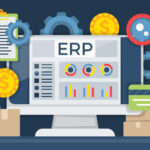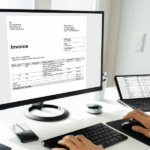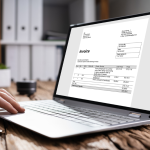Starting in August 2024 the Malaysian Inland Revenue Board (IRBM) will require businesses with a turnover exceeding MYR 100 million to use e Invoicing. This change is part of Malaysia’s National Electronic Invoicing Initiative, which aims to simplify and digitalize business transactions. Here’s everything you need to know about the new requirements and how to ensure your business is compliant.
Understanding the Six-Month Grace Period
The IRBM has announced a six-month grace period from the mandatory implementation date, providing businesses with some breathing room to adapt to the new requirements. During this period, businesses are allowed to issue consolidated e-Invoices for all transactions, including self-billing e-Invoices. Additionally, any description of the transaction can be entered in the “Product or Service Description” field, offering flexibility and ease of transition.
Key Points of the Grace Period:
– Consolidated E-Invoices: All activities and industries can issue consolidated e-Invoices, simplifying the invoicing process.
– Flexible Descriptions: Any description of the transaction is permitted in the “Product or Service Description” field.
– Buyer Requests: Sellers can issue consolidated e-Invoices upon buyer request without the need for individual transaction invoices.
Key Highlights of Malaysia’s E-Invoicing Mandate
- Implementation Timeline and Grace Period
The IRBM has introduced a six month transition period, from the date when e Invoicing becomes mandatory. This gives businesses the flexibility to shift all transactions to e Invoices including self billing. During this time businesses are shielded from action under Section 120 of the Income Tax Act 1967 as long as they adhere to the consolidated e Invoicing guidelines.
Important Dates:
– May 1 2024: Pilot phase commences.
– August 1 2024: e Invoicing for businesses with turnover exceeding MYR 100 million.
– January 1 2025: Requirement extends to businesses with turnover, between MYR 25 million and MYR 100 million.
– July 1 2025: All remaining taxpayers must comply.
- The Clearance Model
Starting August 1 2024 all e Invoices must be submitted to the IRBM for verification purposes.
Assigning an identifier and QR code to each document is important to ensure authenticity and prevent fraud.
Advantages of E Invoicing for Businesses
- Processes: Electronic invoicing helps reduce the workload that comes with manual invoicing. Automated processes lead to invoice processing, fewer errors and better cash flow management.
- Enhanced Compliance: Businesses can rely on the IRBMs validation system to ensure their invoices comply with all requirements reducing the likelihood of audits and penalties. The use of identifiers and QR codes also improves traceability and transparency.
- Cost Savings: By moving from paper invoices businesses can cut costs related to printing, postage and storage. The streamlined process also saves time and resources spent on invoice management allowing for resource allocation.
Scenarios Requiring E-Invoices
The new requirement applies to types of transactions such as;
– Proof of Income: Sales and other taxable transactions.
– Proof of Expense: Purchases and other deductible expenses including corrections or modifications to income documentation.
– Self Billing: Used for transactions, with suppliers or specific domestic transactions.
Ways to Meet E Invoicing Requirements
- Manual and Automatic Submission
Businesses have the option to send e Invoices manually through the MyInvois portal or automatically using API, in XML or JSON formats. This allows companies of varying sizes and technological capabilities to comply with the regulations.
- E Invoicing Software Development Kit (SDK)
The IRBM has introduced an SDK to help businesses integrate their systems with the MyInvois platform. This toolkit includes APIs, libraries and development guidelines making the integration process easier and ensuring compliance is seamless.
- Testing Environment with MyInvois Sandbox
The MyInvois Sandbox offers a testing space for businesses to carry out integration tests. Initially accessible to pilot firms, this platform will be rolled out to all businesses starting from April 22 enabling them to verify that their systems are prepared for implementation.
Understanding Self-Billing Electronic Invoicing
There are instances where businesses need to issue self billing invoices. For instance when dealing with suppliers who do not use the MyInvois system or transactions involving taxpayers. This practice ensures documentation of all business dealings, within Malaysia’s eInvoicing framework.
Scenarios for Self-Billing
– Payments made to agents, dealers or distributors.
– Goods or services procured from suppliers.
– Distribution of dividends.
– E commerce transactions.
– Payouts, to winners in betting and gaming industries.
– Receipts from taxpayers not involved in business activities.
Getting Your Business Ready for the Change
- Review Your Current Billing System
Evaluate your existing invoicing processes and determine what changes are necessary to comply with the new e-Invoicing requirements. Consider investing in software that supports the MyInvois platform and explore the available SDK to streamline the integration. Advintek offers tailored solutions that can seamlessly integrate with your current systems, ensuring a smooth transition to e-Invoicing.
- Educate Your Team
Ensure your staff is well-versed in the new e-Invoicing requirements and processes. Training sessions and workshops can help familiarize your team with the MyInvois portal and the API submission process. Advintek provides comprehensive training programs to equip your team with the knowledge and skills needed to navigate the new e-Invoicing landscape confidently.
- Stay Updated on IRBM and MDEC Announcements
Stay informed about any updates or changes to the e-Invoicing requirements by regularly checking announcements from the IRBM and the Malaysian Digital Economy Corporation (MDEC). This will help your business stay compliant and avoid any potential issues. Advintek stays abreast of all regulatory changes and ensures our clients are always informed and prepared for any updates.
By partnering with Advintek, your business can leverage our expertise and advanced solutions to not only comply with the new e-Invoicing mandate but also enhance your overall operational efficiency. Our commitment to supporting your business through this transition ensures you remain competitive in the evolving digital landscape.
Conclusion
Though adapting to Malaysia’s eInvoicing standards may seem intimidating it is a crucial step towards modernizing your business practices. Moving towards digital invoicing ensures compliance improves processes, enhances adherence and leads to cost savings.
Here at Advintek we grasp the challenges involved in this shift. Are committed to aiding your business throughout the process. With our knowledge and all encompassing solutions we can assist you in incorporating e Invoicing into your workflow keeping you at the forefront of advancements.
Explore further about our offerings. How we can support you on this journey, towards transformation by checking out our website here.









